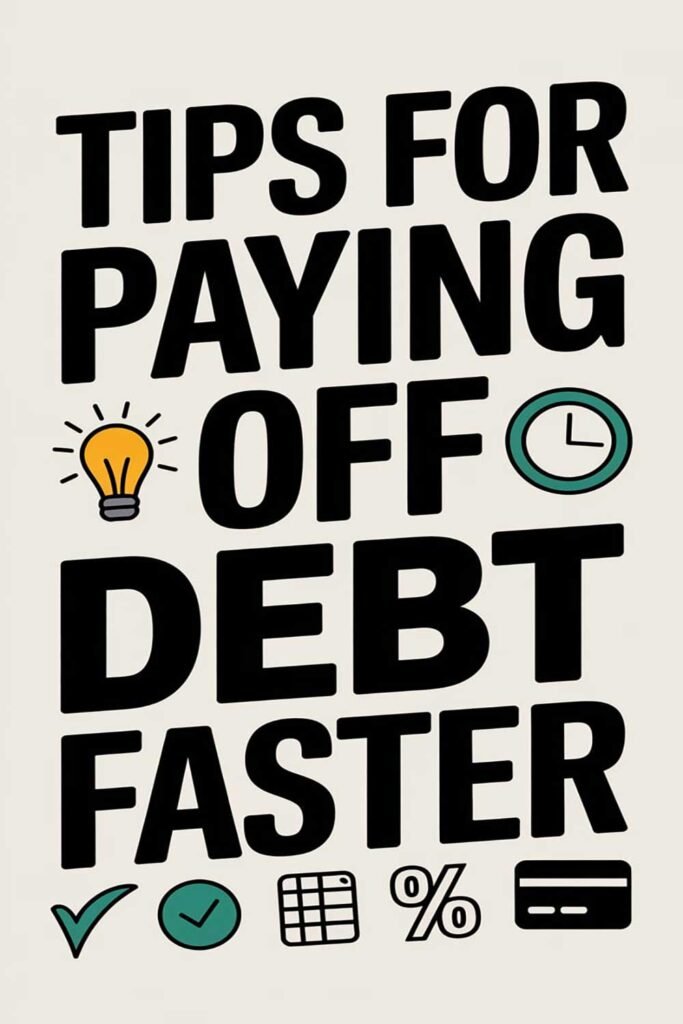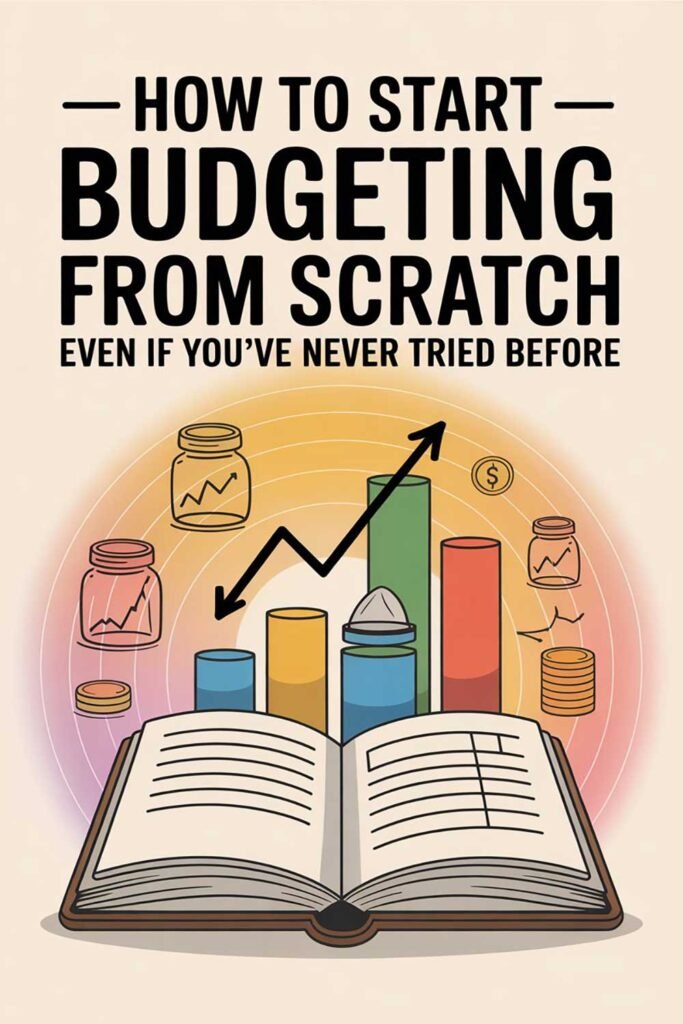The Psychology of Money Goals: Why You Set Them But Don’t Reach Them
You set a goal to save $10,000. Or to pay off that credit card. Or to finally stick to a budget. But a few weeks in, you fall off track, feel guilty, and wonder, “Why can’t I follow through?”

It turns out, failing to reach money goals is often less about math—and more about mindset. Understanding the psychology of money goals can help you break the cycle, take real action, and finally follow through with confidence.
In this article, you’ll explore the psychological barriers that sabotage financial goals, how to overcome them, and practical steps to finally achieve the goals you set.
Why We Set Money Goals in the First Place
- We want security
- We crave freedom and options
- We want to stop stressing over money
- We want to achieve something meaningful
Setting a goal gives us a sense of hope and control. But hope alone isn’t a strategy.
Real-Life Example:
Lena set a goal to save $5,000 in a year but kept dipping into her savings. After exploring her mindset, she realized she subconsciously didn’t trust herself with money because of past financial trauma. Once she addressed that belief, she began to make consistent progress.
6 Psychological Reasons You Don’t Reach Your Money Goals
1. Your Goal Isn’t Tied to a Deep Emotion
If a goal is just logical (like “save money”), it won’t stick. Emotion drives action.
Fix It: Tie your goal to a feeling. Want to save for a house? Why? Maybe it’s about safety, stability, or creating childhood memories for your kids.
2. You Have Conflicting Goals
You want to save money and upgrade your lifestyle and travel. These compete with each other.
Fix It: Use the 1-2-3 Rule:
- Focus on 1 major goal
- Support 2 minor goals
- Delay the rest for now
3. You Don’t Believe You Deserve Wealth
Many people self-sabotage because of deep-rooted beliefs:
- “I’ve always been bad with money.”
- “People like me don’t get rich.”
Fix It: Rewrite the belief:
- “I am learning to manage money well.”
- “I deserve financial peace.”
4. You Rely on Willpower, Not Systems
Motivation fades. Systems keep working.
Fix It: Automate your finances: transfers, savings, bills. Use trackers. Remove decision-making.
5. Fear of Success or Change
Sometimes we unconsciously resist our goals because reaching them changes our identity.
Fix It: Visualize your new self. What would the “you with money” look like? Dress like? Feel like?
6. You Don’t Track Progress
Without feedback, you lose motivation.
Fix It: Use visual trackers or budget apps to watch your money goals grow. Small wins spark big energy.
Real-Life Example:
Alex created a visual tracker for debt payoff. Each $100 block he colored kept him focused. He went from stuck to debt-free in 14 months.
How to Rewire Your Mindset for Money Success
1. Use Identity-Based Goal Setting
Don’t just say, “I want to save money.” Say: “I am a person who builds wealth.”
Align your daily habits with that identity.
2. Create Habit Triggers
Pair money habits with existing routines:
- Review budget during Sunday coffee
- Check account after brushing teeth at night
3. Celebrate Micro-Wins
Dopamine drives motivation. Celebrate every milestone:
- Saved $100? Treat yourself (mindfully)
- Stuck to the budget this week? Write it down and cheer yourself on
4. Build Accountability
- Share your goal with a friend
- Join a financial Facebook group
- Post your progress publicly (if you’re comfortable)
Real-Life Case Study: Sarah’s $20K Turnaround
Sarah, 34, had been trying to build savings for five years with no success. After working with a coach, she uncovered her core issue: she feared having money because her family used to fight over it.
Once she addressed that fear, created a monthly plan, and used automation and tracking tools, she saved $20,000 in 18 months. Her new identity? “I’m someone who protects her peace and builds freedom.”
20 Quotes to Inspire a Mindset Shift
- “Whether you think you can or you think you can’t, you’re right.” – Henry Ford
- “Your beliefs become your thoughts. Your thoughts become your words. Your words become your actions.” – Mahatma Gandhi
- “Success is 80% mindset and 20% strategy.” – Tony Robbins
- “Money is a mindset. Get yours right.” – Unknown
- “What you focus on expands.” – T. Harv Eker
- “You attract what you believe you deserve.” – Unknown
- “Change your thoughts and you change your world.” – Norman Vincent Peale
- “Progress, not perfection.” – Unknown
- “The habits that got you here won’t get you there.” – Marshall Goldsmith
- “Your money will never grow beyond your mindset.” – Unknown
- “Your future is created by what you do today.” – Robert Kiyosaki
- “Discipline is choosing between what you want now and what you want most.” – Abraham Lincoln
- “Every next level of your life will demand a different version of you.” – Unknown
- “The best way to predict your future is to create it.” – Peter Drucker
- “Motivation gets you going. Discipline keeps you growing.” – John C. Maxwell
- “What gets measured gets improved.” – Peter Drucker
- “Believe you can and you’re halfway there.” – Theodore Roosevelt
- “Small hinges swing big doors.” – Unknown
- “Energy flows where attention goes.” – Tony Robbins
- “Becoming rich starts with believing you can.” – Unknown
📸 Picture This
You’re no longer stuck in the cycle of frustration. You don’t just set money goals — you live them. You understand what’s been blocking you. You’ve rewired your thinking. Your budget feels empowering. Your savings are growing. And for the first time in a long time, your money is working for you, not the other way around.
What would your financial life look like if your mindset finally matched your goals?
💬 Please Share This Article
If this article helped you uncover why your money goals haven’t been working, share it with someone else who might be stuck in the same cycle. Sometimes, all it takes is one mindset shift to create a breakthrough.
⚠️ Disclaimer
This article is based on personal development and financial mindset coaching principles. It is for informational purposes only and does not replace financial, medical, or psychological advice. Always consult a licensed professional for personalized support.






